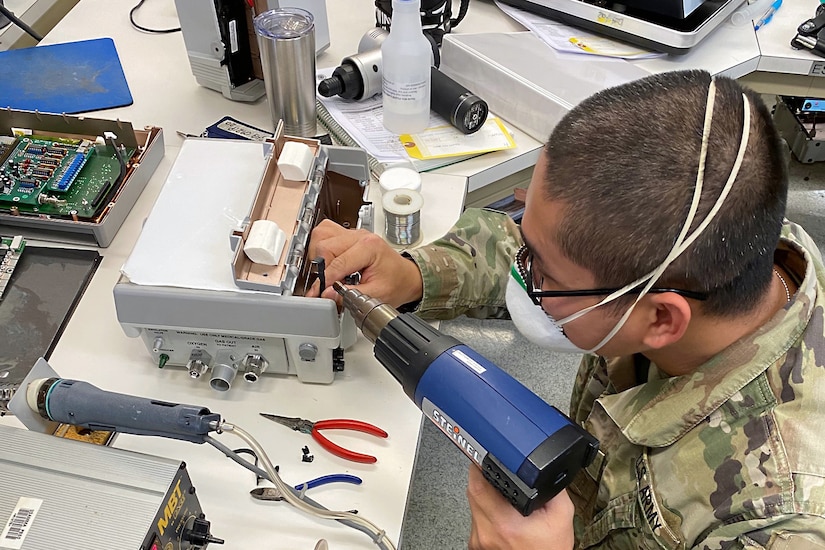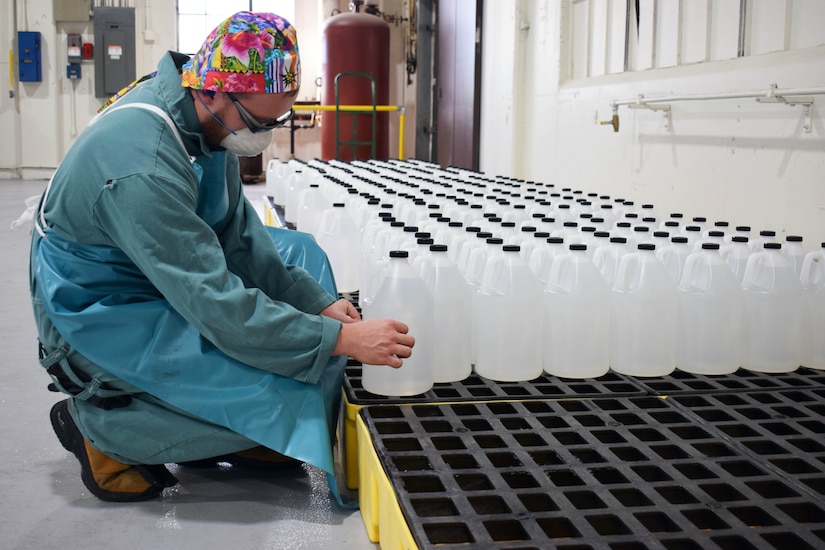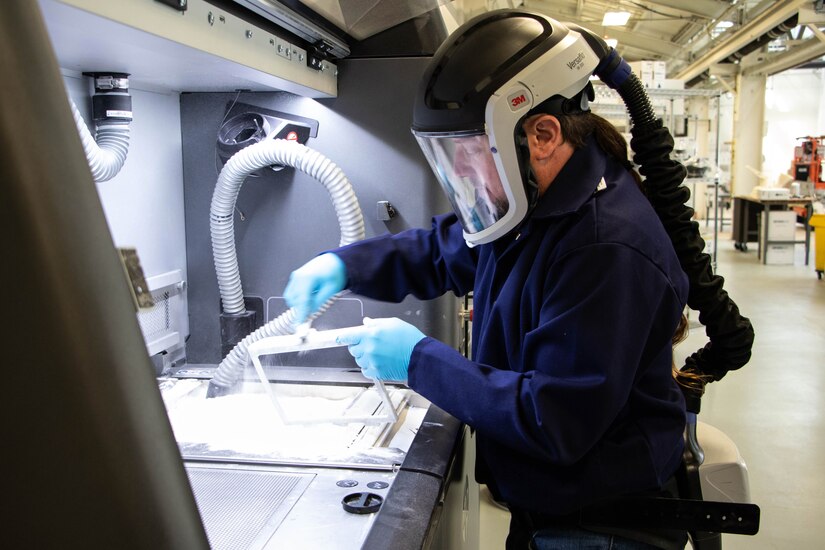Aug. 18, 2020 |
Managed by Army Materiel Command, the OIB consists of 26 depots, arsenals and ammunition plants that manufacture and reset Army equipment, generating readiness and operational capability throughout Army formations.
By nature of the production lines and facilities within the OIB, much of the artisan workforce is already working within the recommended social distancing guidelines, allowing them to continue their critical operations while taking the necessary steps to maintain a healthy working environment. Some facilities have implemented additional steps to maintain a healthy working environment, such as using telework to the maximum extent possible, working added or staggered shifts, installing transparent barriers to work stations and issuing protective equipment to the workforce.

In addition to maintaining mission requirements, several OIB facilities have modified production capabilities and processes to meet Army needs for PPE and other essential items in response to the pandemic.
Army Aviation and Missile Command's Letterkenny Army Depot in Pennsylvania has taken steps to protect its workforce while maintaining its current workload providing repair and modernization of essential air, missile and space systems. Additionally, LEAD produced medical isolation gowns for a Pennsylvania-based health care system as part of a public-private partnership.
"As part of the Army's Organic Industrial Base, Letterkenny is prepared to respond when the nation calls," Army Col. Gregory Gibbons, LEAD commander said. "Part of that response is flexibility, and we're honored to provide a solution for our local community."
Joint Munitions Command facilities have produced more than 70,000 cloth face coverings and 2,300 gallons of hand sanitizer for Army personnel to continue their mission-essential work. The face coverings were developed and produced at Pine Bluff Arsenal, Arkansas, while the hand sanitizer was produced at McAlester Army Ammunition Plant, Oklahoma, and Crane Army Ammunition Activity, Indiana.

Army Communications-Electronics Command personnel at Tobyhanna Army Depot in Pennsylvania collaborated with Army Medical Logistics Command medical maintenance technicians to establish the design requirements for producing the initial prototypes, and then sourced the electronic components to build 52 power supplies for ventilators.
Jack Rosarius, director of medical maintenance management for the Army Medical Materiel Agency, said in a May interview that he was impressed with the quality and turnaround time of the power supply units.
"Depot engineers visited the facility to examine a couple samples, and in very short order, produced what we needed," Rosarius said.
The new ventilator power supply design is slightly smaller than the original, and it's made with commercial off-the-shelf components. Tobyhanna was able to procure the components, fabricate and test the units in fewer than 11 days.
In addition to using existing OIB facilities and equipment, AMC is using additive manufacturing processes to design and 3D print essential parts and equipment. The Rock Island Arsenal-Joint Manufacturing and Technology Center's Advanced Manufacturing Center of Excellence will produce more than 1 million testing swabs on two printers by year's end for use by Defense Department personnel, reducing the demand on commercially available swabs that can now be used for the general public.

Army Col. Jimi Hendrix, RIA-JMTC commander, said he is impressed by what his team has accomplished and the external support they have received.
"Organizations across the AMC enterprise, the U.S. government and private industry have partnered with us to provide designs and seek [Food and Drug Administration] approval for the production of nasal swabs to support COVID-19 testing," Hendrix said. "Processes that usually take years are falling into place within weeks."
RIA-JMTC also has produced 55 power supply assembly covers for ventilators and 300 ear savers designed to extend the life of a mask and provide more comfort for the wearer.
(William King is assigned to the U.S. Army Materiel Command.)






No comments:
Post a Comment